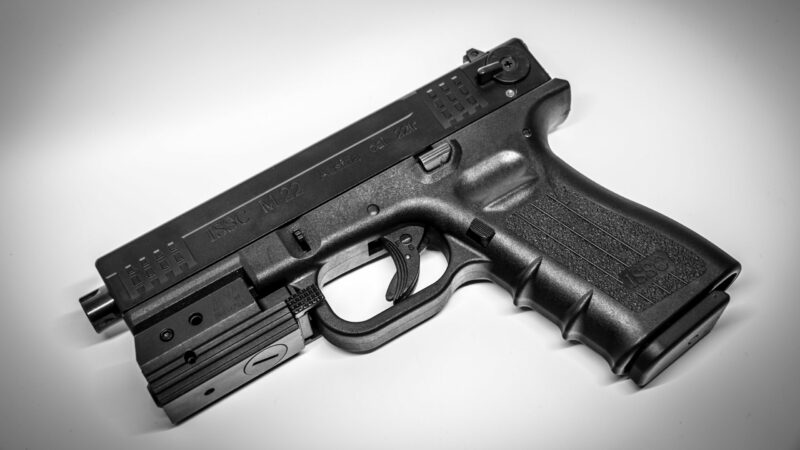Alabama has 5th highest U.S. gun death rate. A study blames weak laws, high ownership
A new study on gun death rates in the U.S. shows Gulf South states among the top five for the highest overall death rates for 2021, and it places the blame on weak gun laws and high rates of gun ownership.
The Violence Policy Center, a non-profit educational organization based in Washington D.C., used data from the Centers for Disease Control and Prevention for the study, which it has published every year since 2006.
The study ranked Mississippi first of all 50 states with a gun death rate of 32.61 per 100,000 people. Louisiana ranked second with a rate of 28.42 and Alabama ranked fifth with a rate of 26.09. Each of the three states also had some of the highest household gun ownership rates in the U.S., according to a study from the American Journal of Preventative Medicine, at 50.9%, 46.6% and 48.3% respectively.
The nationwide gun death rate in 2021, the study said, increased to 14.71 per 100,000 people, up from 13.73 per 100,000 people in 2020.
“America is facing an unprecedented gun violence crisis,” Kristen Rand, VPC’s government affairs director, said. “The evidence could not be more compelling that our spiraling gun death rates are driven by exposure to firearms.”
Josh Sugarmann, the center’s executive director, said he's rarely surprised by the results anymore, especially when it comes to the South.
“The fact is that these states have virtually no laws on a statewide level that go beyond federal gun law,” he said. “And there's a reason for that …they're pro-gun states.”
Sugarmann said the south’s outlook contrasts with states on the east coast that have significantly lower gun death rates and ownership rates. For example, Massachusetts, New York, New Jersey, and Rhode Island, rank in the bottom five.
Communities in Mississippi, Alabama and Louisiana that do want stronger gun laws are at the mercy of their state governments thanks to firearms preemption laws, meaning no city or community can pass a gun law tougher than what is in effect statewide.
Sugarmann believes another issue these states have is that they are in denial that they even have a gun problem, with some trying to segment gun death. However, VPC uses the CDC’s data to analyze the total number of gun deaths. That number includes homicides, suicides, and unintentional deaths.
This story was produced by the Gulf States Newsroom, a collaboration among Mississippi Public Broadcasting, WBHM in Alabama and WWNO and WRKF in Louisiana and NPR.
Poland’s Iga Świątek thrashes American Amanda Anisimova in Wimbledon women’s final
The Polish player emerged victorious after less than an hour of gameplay.
Israeli settlers beat U.S. citizen to death in West Bank
A 21-year-old Florida man was beaten to death by Israeli settlers while visiting family in the West Bank.
FEMA removed dozens of Camp Mystic buildings from 100-year flood map before expansion, records show
Federal regulators repeatedly granted appeals to remove Camp Mystic's buildings from their 100-year flood map, loosening oversight as the camp operated and expanded in a dangerous flood plain.
In Myanmar, a rush for rare earth metals is causing a regional environmental disaster
A drastic increase in unregulated production of rare earth minerals in Myanmar is causing serious environmental concerns downriver in Thailand, as China's influence in the sector looms large.
No playing Spanish-language music: Many immigrants say they have new rules for driving
As the Trump administration's crackdown continues, traffic stops have become increasingly important tools of enforcement. It has led many immigrants to take alternate modes of transportation.
In the Texas flood zone, volunteers help reunite lost pets with their owners
Hundreds of pets have been reported missing after the devastating floods in central Texas. Volunteers have been combing through debris to help reunite them with their owners.







